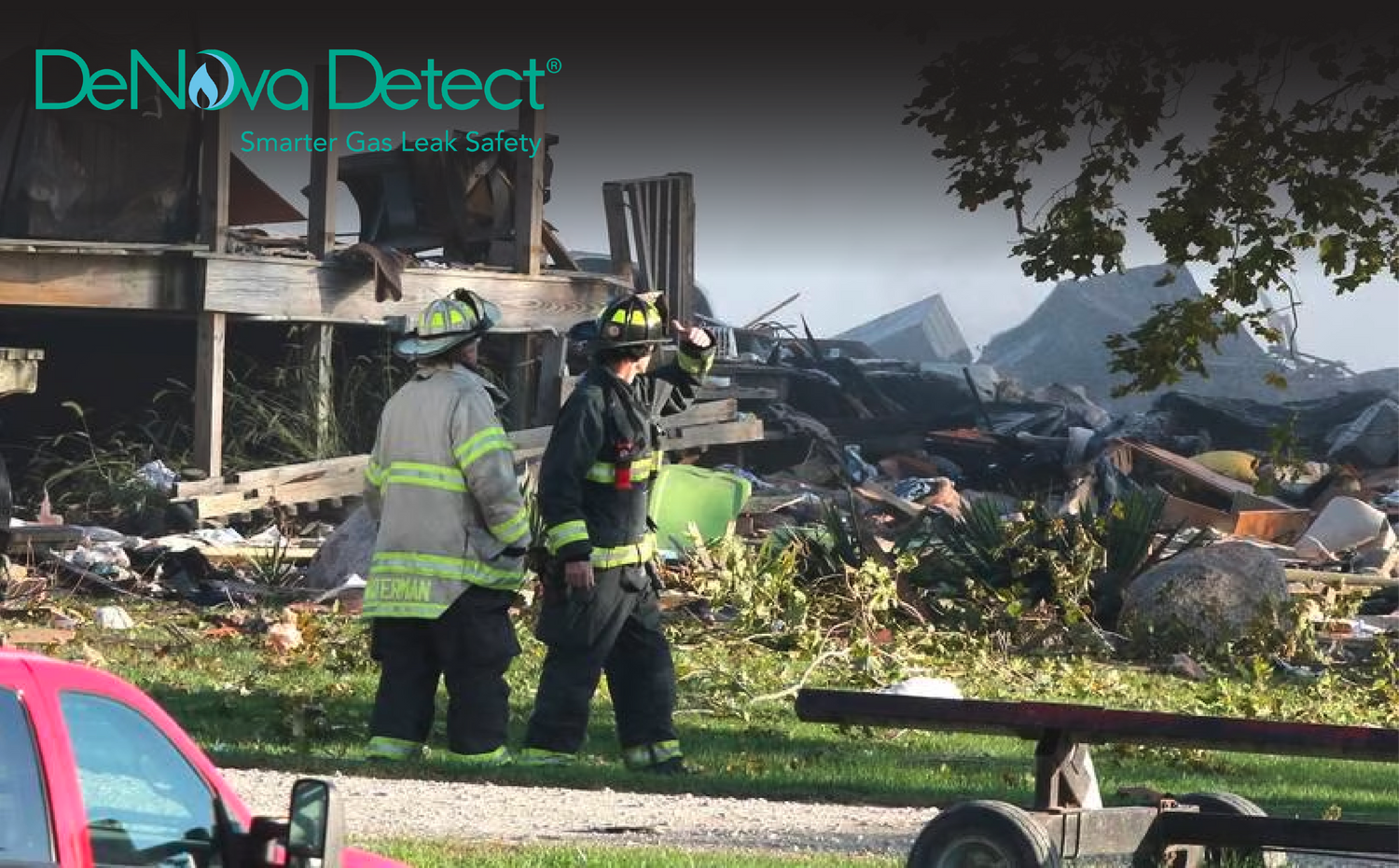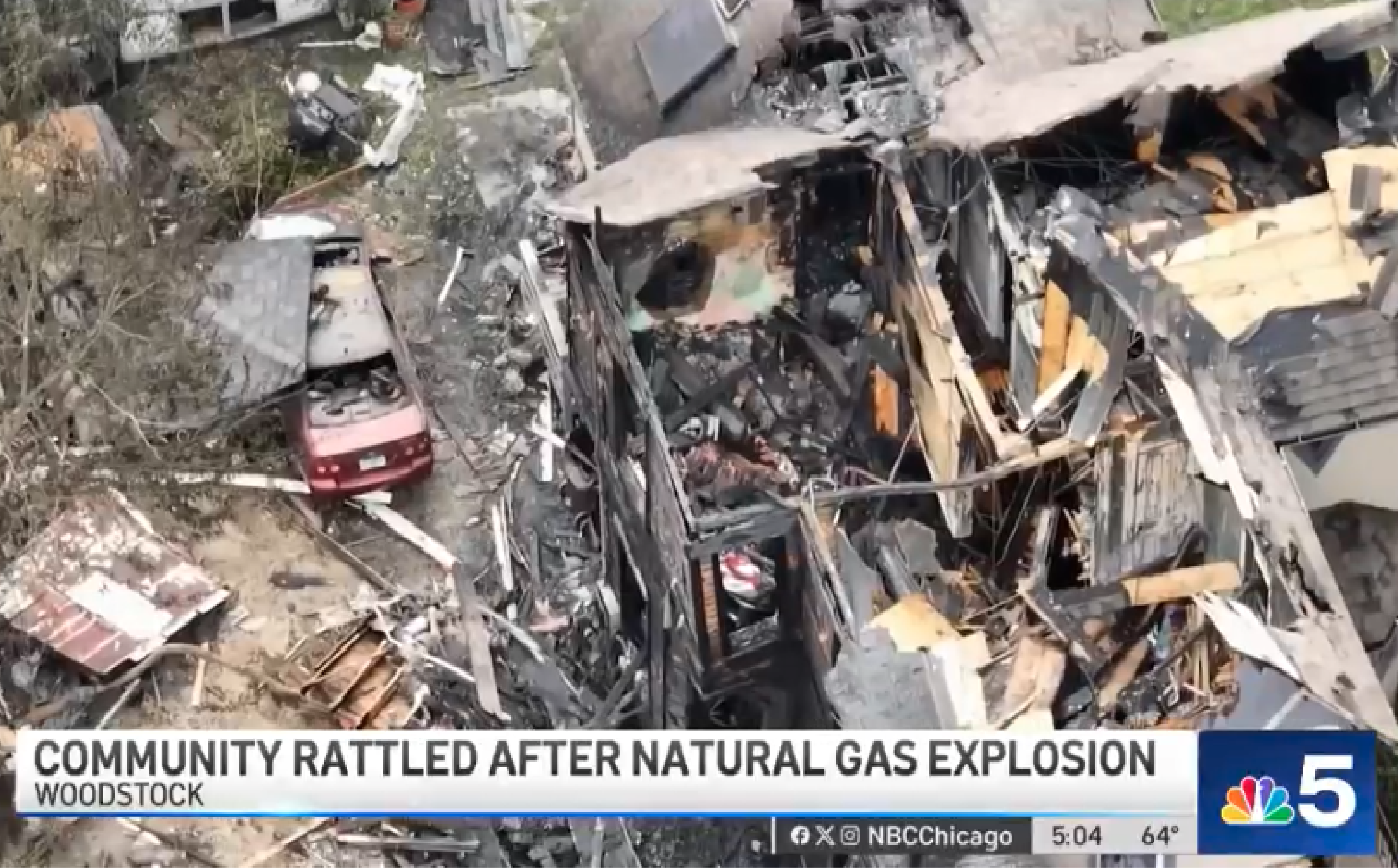Home explosions in Woodstock and Earlville this month have renewed calls for better prevention measures in Illinois homes, rental units and businesses to protect from natural gas emergencies.
Legislators backing a bill in Springfield said requiring natural gas alarms in homes – much like smoke or carbon monoxide detectors – would stop what they said are preventable incidents.
“The best preventive method is a detector in every room with a gas appliance,” said state Sen. Craig Wilcox, R-McHenry, on Thursday.
In February, Wilcox proposed a senate bill, dubbed the Fuel Gas Detector Act, that would require a natural gas detector to be installed in any room containing an appliance fueled by propane, natural gas or liquified petroleum gas. The bill also outlines requirements for residential rental units, according to a news release from Wilcox’s office. All properties with appliances fueled by natural gas that are sold after Jan. 1, 2024, would be required to have natural gas detectors.
If signed into law, violators would face a $500 civil penalty unless proof of gas detector installation is provided within 10 days of the original notification of noncompliance, according to Wilcox’s office.
The senator said that while he’s “cautious” about mandates, he believes the provisions in his bill, if passed, are needed.

A home explosion in Woodstock earlier this month damaged 20 structures, displacing almost two dozen people, authorities said. Two homes, including the one that exploded, were deemed complete losses, and two others are “structurally uninhabitable,” Woodstock Fire and Rescue District Communications Specialist Alex Vucha said.
The cause of the blast – which occurred about 2:35 p.m. Oct. 9, about two hours after a crew working on sewer lines in the area near downtown struck a gas main and caused a leak – still was under investigation as of Oct. 10. The explosion shook buildings in downtown Woodstock, some of which had windows broken, and sent smoke billowing into the sky.
No one was injured in the blast, although authorities said two pet dogs were in critical condition. Two firefighters were taken to hospitals for minor injuries, officials said.
[ Photos: Woodstock house fire and explosion ]
In rural southern DeKalb County, a home was leveled and one person injured Tuesday after a home exploded in Earlville. Authorities haven’t determined a cause as of Friday. DeKalb County Chief Deputy Sheriff Jim Burgh said the explosion threw debris into treetops, on top of a shed and some pieces of the home landed about 50 yards away on Goble Road.

[ Photos: Earlville house explosion levels home, injures one ]
In July, a natural gas explosion destroyed a home near Lisle in DuPage County. No one was inside the home at the time, according to the DuPage County Sheriff’s Office. No foul play was suspected, authorities said.
October is Fire Prevention Safety Month, and municipal fire departments across the state are using the window to remind Illinoisans about how to keep their homes safe.
Julie Harris, a natural gas safety expert with DeNova Detect, which created the world’s first natural gas alarm in 1964, said 60% of homes in the country use natural gas.
According to DeNova Detect, there’s a natural gas explosion in the U.S. every 40 hours, and 300 serious explosions per year. In Illinois, there have been three gas explosions in the past two weeks and nine in 2023 so far. In the past four years, Illinois has seen 26 natural gas explosions.
“The numbers are alarming that this happens far too often without warning, and they can become deadly,” Harris said. “[...] People can become homeless within hours. This is life and a public safety issue that Americans can no longer ignore.”
What causes explosions? Multiple variables, Harris said.
“It could be because of a faulty connection, a break in the gas main, and one of the biggest issues is our aging infrastructure,” Harris said. “Our gas pipelines are very antiquated and the gas lines we use are the same gas lines our grandparents used. And there’s obviously corrosion that comes over time with seasons changing and what not.”
Natural gas detectors should be no more than a foot from the ceiling, Harris said. Natural gas is lighter than air, so if there’s a leak, gas will rise and accumulate near ceiling first. She said she also advises against relying solely on one’s sense of smell to detect natural gas leaks, which are often reported as smelling like rotten eggs. A alarm can help detect a leak even when someone is sleeping.
“These explosions are preventable and a natural gas alarm is a simple solution,” Harris said.
Source: Shaw Local News Network





Leave a comment
This site is protected by hCaptcha and the hCaptcha Privacy Policy and Terms of Service apply.